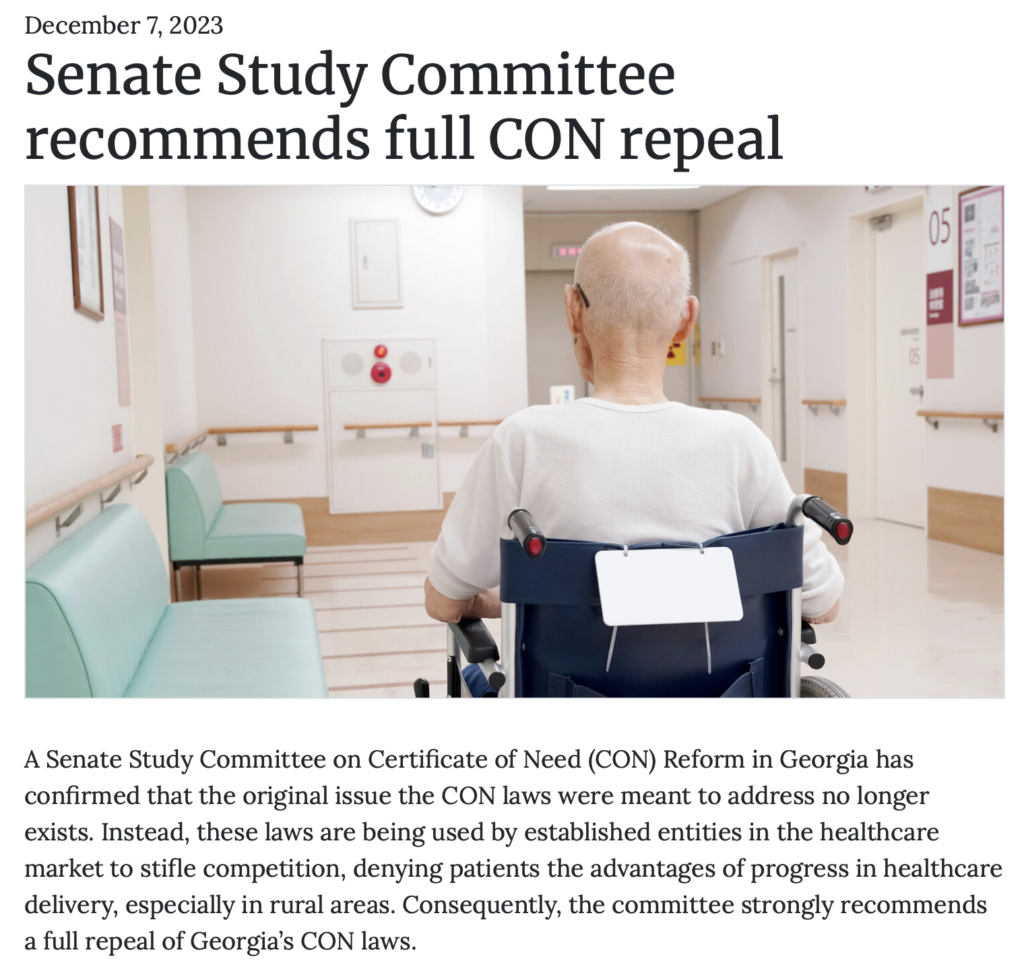
This year, Georgia Public Policy Foundation had our biggest year to date in terms of content produced and consumed. We’re constantly producing new stories, commentaries and videos that you can find here, in your inbox and on social media. We thank you for your support. Our goal is to be Georgia focused, conduct research no one else is producing and tell stories that aren’t being told.
As we prepare to welcome in a new year, here is a review of our most read and most shared stories of 2023:
What happened during the 2023 session?
For a one-word description of Georgia’s 2023 legislative session, one could hardly improve on “almost.” From school choice to Certificate of Need reform to housing reform, we “almost” saw progress.
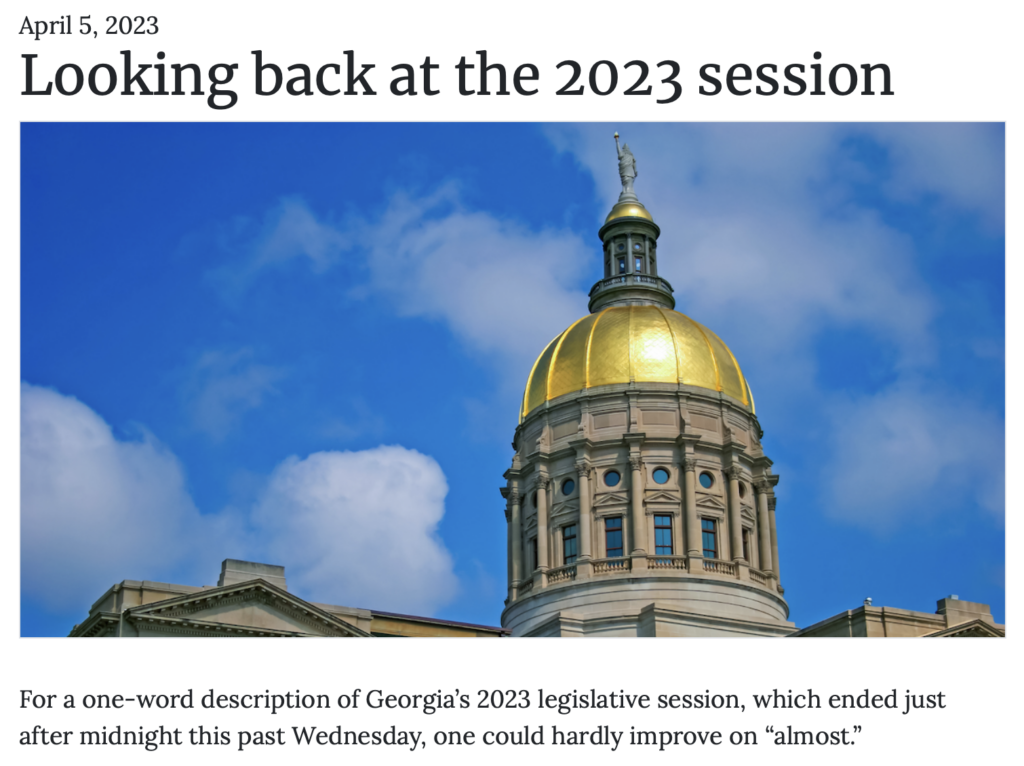
How CON laws limit rural healthcare access
Certificate of Need reform continues to be a hot topic in the General Assembly. While supporters say they help rural areas, we looked at the rural community of Lee County and their decade-long so far unsuccessful fight for a hospital in their county.
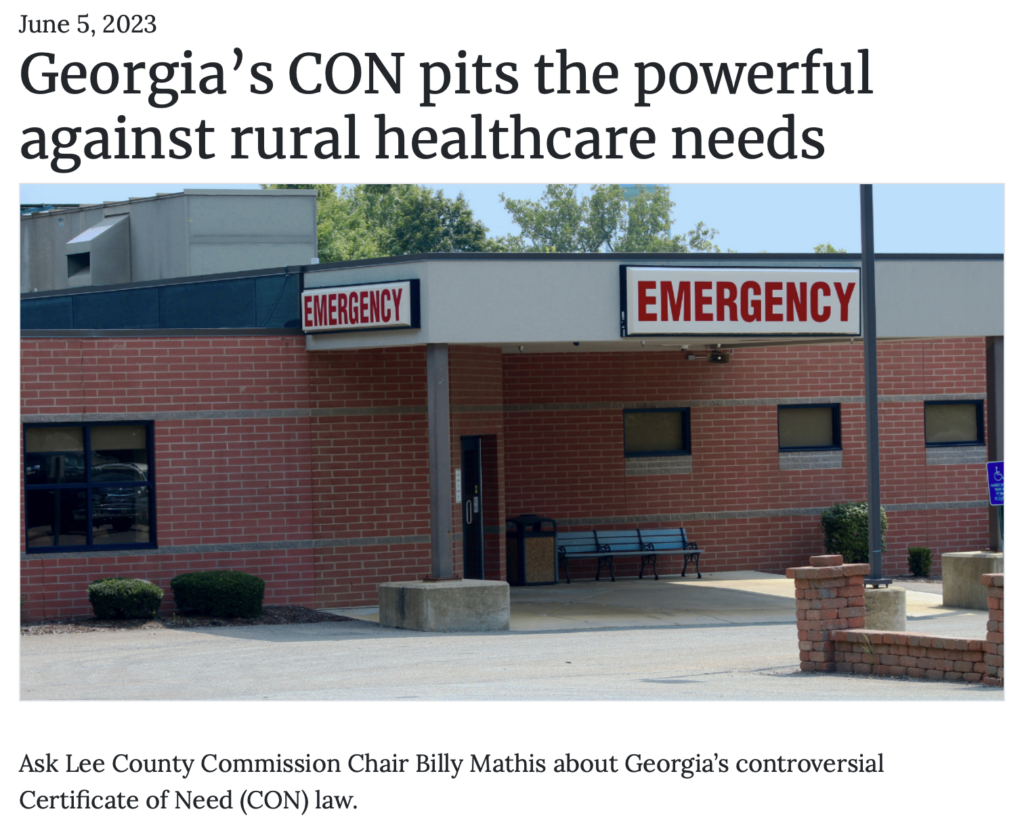
Why can’t developers build tiny homes in Calhoun?
An organization was donated land to build tiny homes in Calhoun, Georgia. Tiny homes provide a lower cost alternative to those who want a smaller house. But the city said no. Even though they didn’t seem to have a reason for doing so.
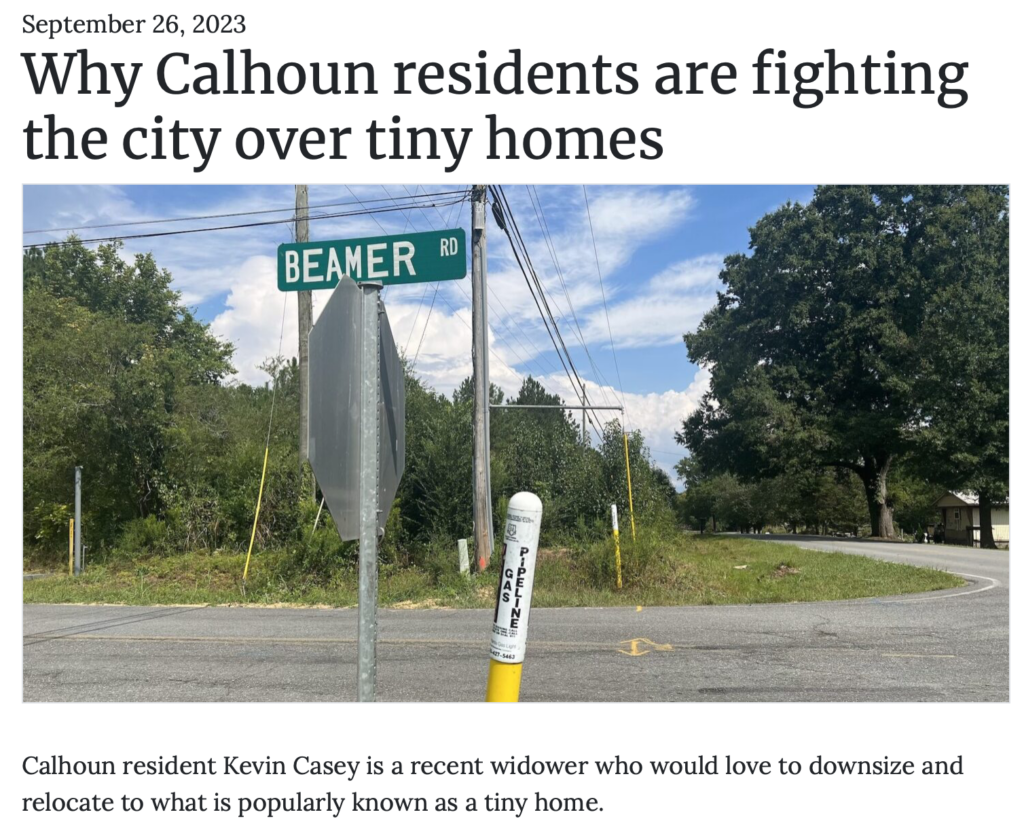
Cities that fund government via fines and fees
Three Georgia cities were noted for relying to heavily on fines and fees to run their government in 2019. We decided to check in with those cities to see if they’ve changed their way. Are Morrow, Riverdale and Clarkston doing any better in 2023?
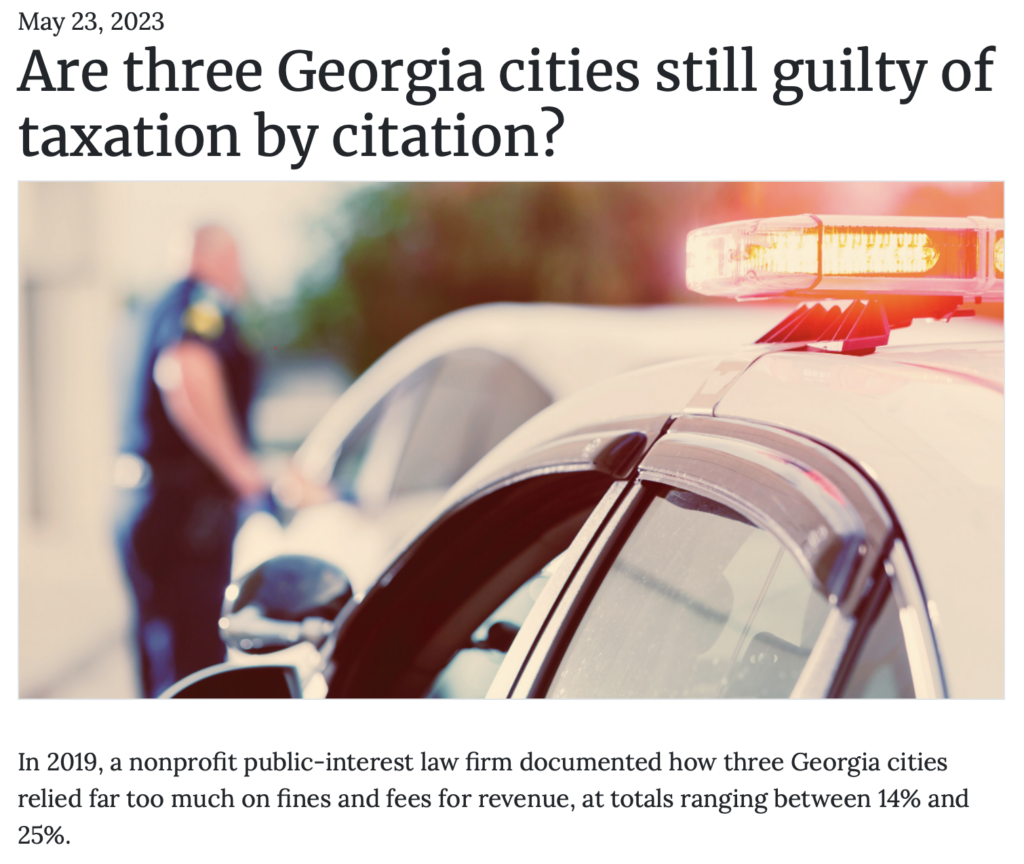
Georgia’s neighbors move forward on expansive school choice programs
After the Georgia legislature decided not to move on school choice legislation during the 2023 session, we saw North Carolina become the latest state that borders Georgia to pass sweeping education freedom legislation. Remarkably, North Carolina did it with a Democratic governor.

Rural Georgia’s rising population numbers could create unexpected tensions
As Georgia continues to grow in massive numbers, that population growth continues to push north toward the mountains and the state line. One interesting tidbit about their government is that seven of these counties are run by a sole commissioner. Rather than a board. As rural counties experience the inevitable changes that come with growth, time will tell if the sole commissioner practice fades away.
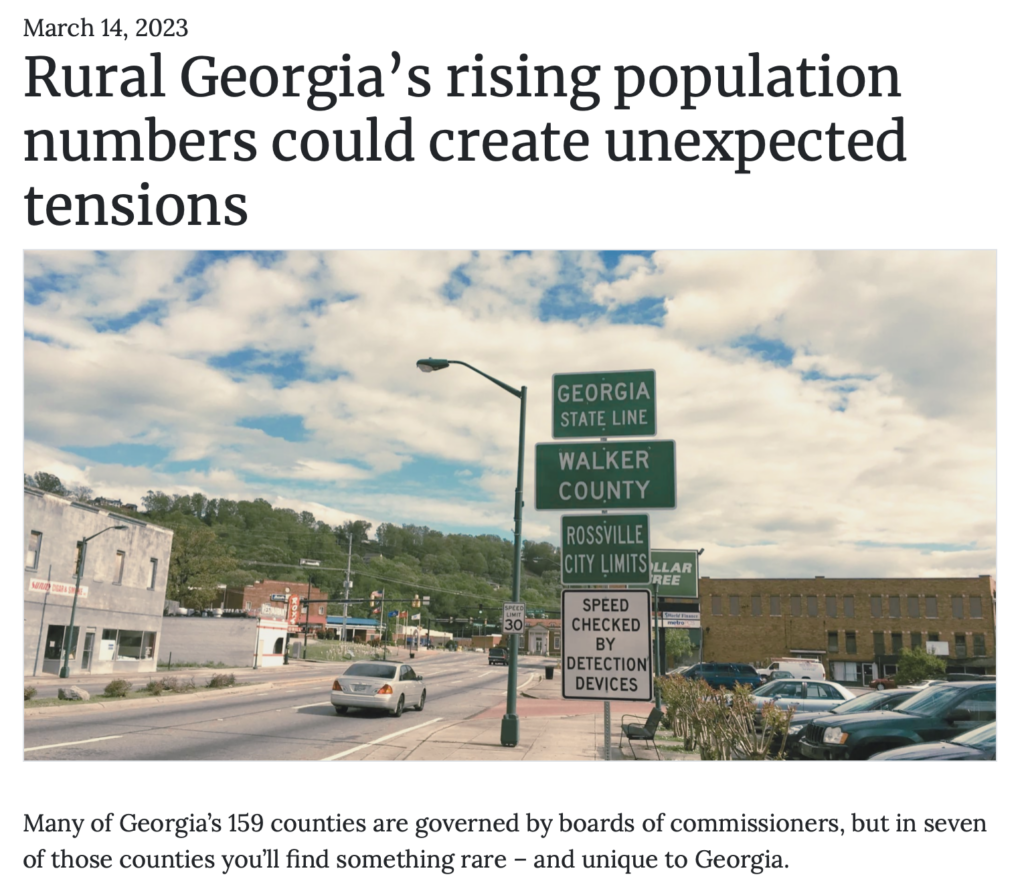
Can a family keep the railroad off their property?
The Sandersville Railroad Company wants to construct a 4.5-mile-long rail spur in Sparta, Georgia. We spoke with the family that is fighting this on their property in a story that pits family land versus economic development in rural Georgia.
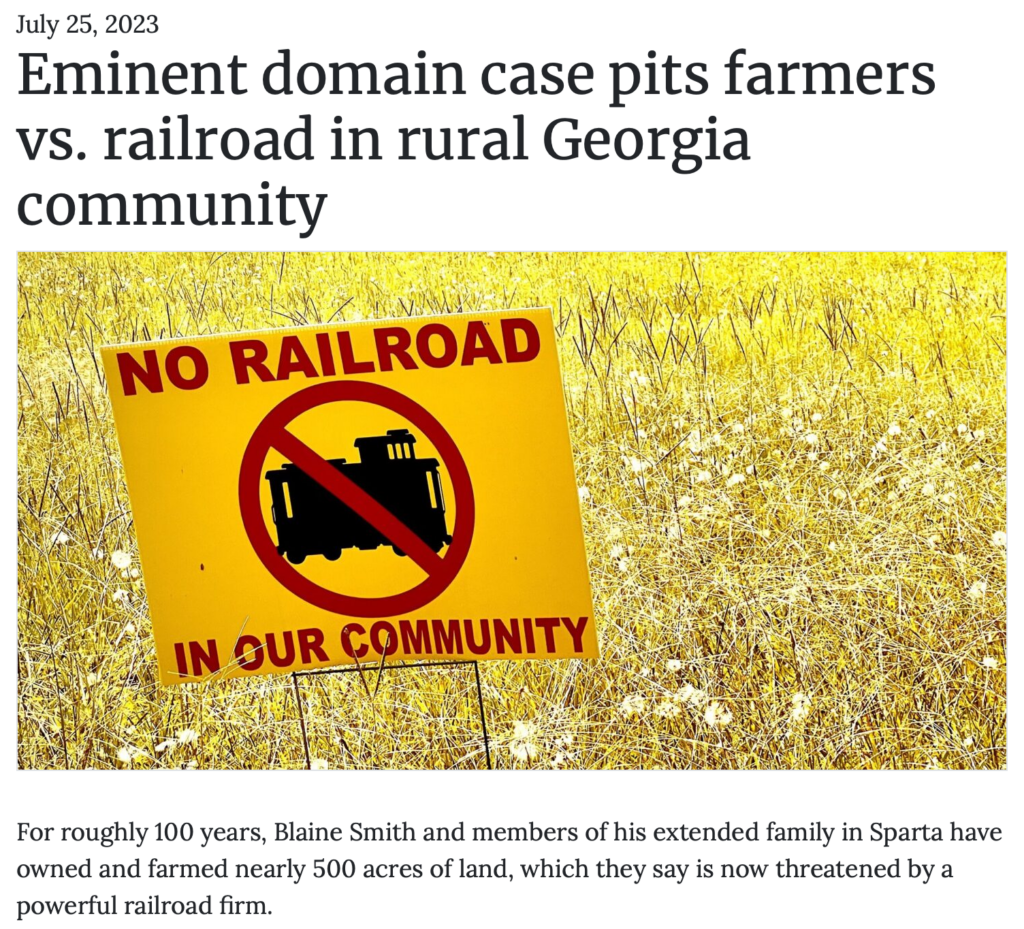
Atlanta brewery closes as Georgia’s prohibition era laws come in focus
An Atlanta brewery that closed its doors this summer raised questions about Georgia’s brewery laws that require breweries to sell to wholesalers, rather than directly to retailers. This creates a middle man that raises costs, something brewers in nearby states don’t have to worry about. Something a few lawmakers have unsuccessfully tried to fix.
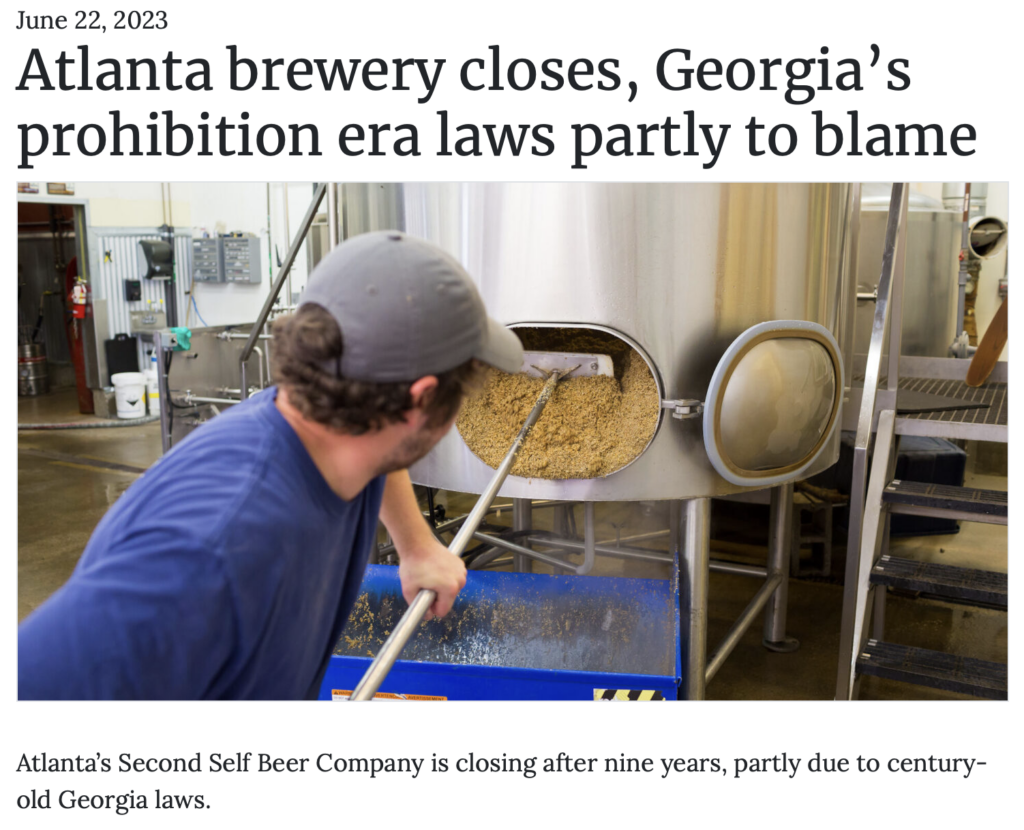
A mileage-based user fee?
For decades, Georgia has paid for its roads, bridges and other transportation infrastructure with a fuel tax. But there is a push to change to a mileage-based user fee.

Do government regulations limit housing supply?
A report the Foundation released this year looked at lot and home size minimums throughout Georgia. As Georgia continues to grapple with higher housing costs, this is one area where the government artificially limits the supply of housing in their communities.
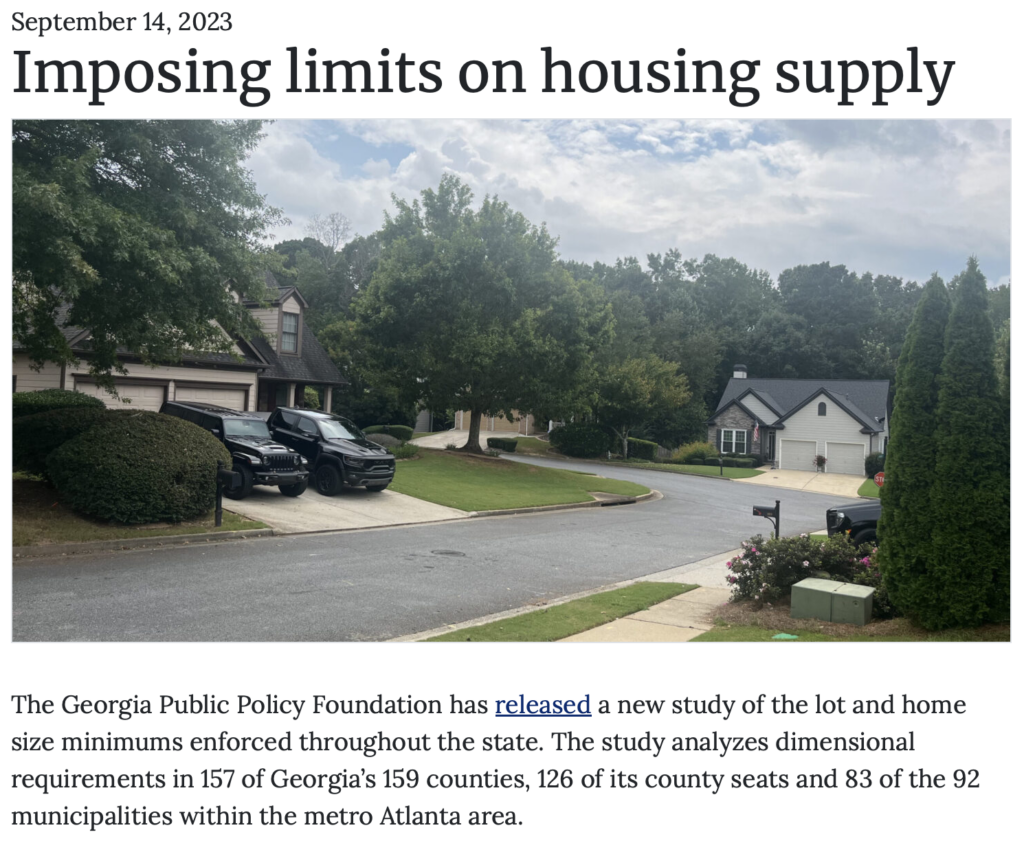
Senate study committee calls for CON repeal for Georgia
Their findings, supported by testimonies and research, which included the Georgia Public Policy Foundation, highlight how the CON process obstructs advancements in healthcare and creates anti-competitive environments. To guide potential legislation, the committee recommended South Carolina, which recently repealed nearly all its CON law, as a model.
